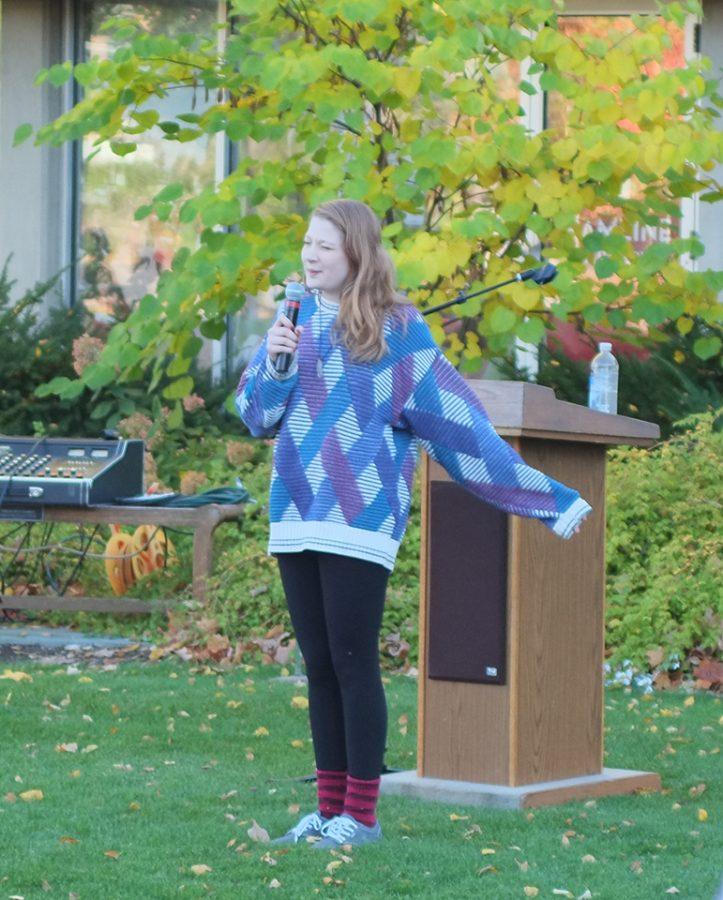Myths and realities of sexual violence
“Take Back the Campus” sheds light on what lurks in the shadows on campus.
Junior Blythe Baird performs a slam poem at Take Back the Campus.
November 2, 2016
Booths and the stories of sexual violence and prevention filled Alumni way for Take Back the Campus. Take Back the Campus is an annual event hosted by student organizations and organizations from Minneapolis and St. Paul. They brought issues of sexual violence on campus to light on Oct. 18.
The event structure was different this year. Instead of having speakers at the end of the event, the speakers were moved to the middle, allowing the event to end with a candlelight vigil.
“[We are here] to support survivors and victims of sexual violence,” Women’s Resource Center graduate Intern Sam Schmitt said. Schmitt wanted the event to be a “rally event [for survivors of sexual violence] to share their experiences.”
Students Preventing Sexual Violence had a booth, as well as the Women’s Resource Center, Spectrum and the Feminist Liberation and Intersectionality Coalition. They all informed on how each community is affected by sexual violence and how friends and advisors could harm sexual violence survivors emotionally and physically no matter what gender or disability they have.
Executive Director of Minnesota Coalition Against Sexual Assault Jeanne Ronayne spoke about the diversity of each community: “All genders are affected by [sexual violence].” She was very outraged by how little change there has actually been, saying “in one year there was 61,000 victims [of sexual assault] in Minnesota.”
Communication Services for the Deaf and Minnesota Deaf Domestic Violence Program spoke on violence in the deaf community. Ninety percent of deaf people have experienced violence in some form, they said.
Many of the speakers talked about their different experiences and perceptions of sexual violence.
“I like how it [Take Back the Campus] covered a lot of different communities and not just one,” sophomore Abby Morton said.
Junior and slam poet Blythe Baird read three of her poems about sexual violence victims and how society looks at victims like it is their fault.
“Thank you for giving me a space not to put something on someone,” Baird said, referring to how victims feel that speaking of their trauma burdens others.
At the end of the presentations, the podium was opened to the public for whoever wished to speak of their experiences and give their support to others.
“The discussion doesn’t end here,” senior Amy Hehir said. “I encourage all students to attend classes where these discussions are held.”
Making Waves, a theater group that informs students on social issues, used satire to bring home many misnomers about sexual violence like “no means no” and how revealing clothes aren’t a way to consent for sex.
A powerful candlelight vigil ended the event as the campus was plunged into the darkness of night.
“Let this light illuminate our way forward,” Director of the Women’s Resource Center Kathy Burleson said. She ended the ceremony with a message of hope for the future and those who had experienced sexual violence: “Go into the world and share your light.”

